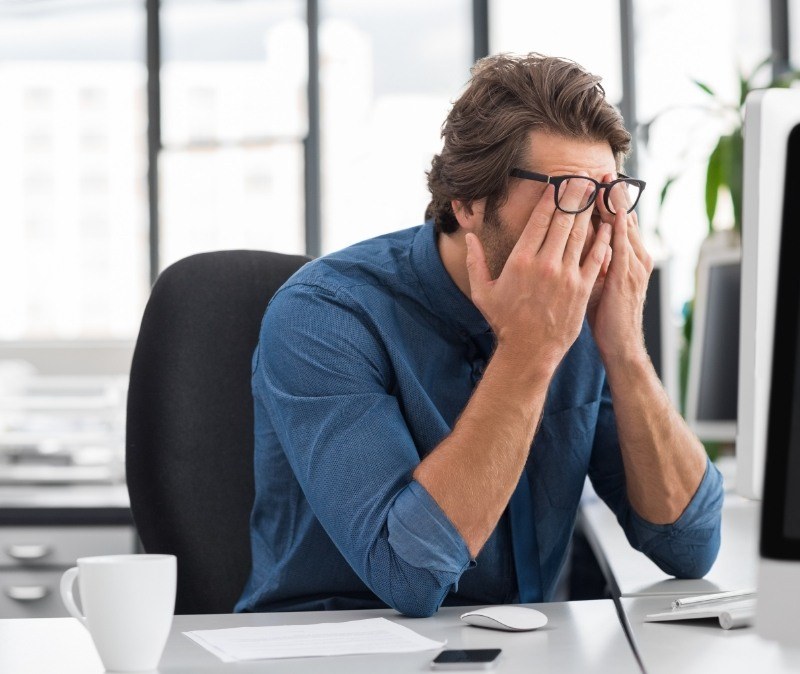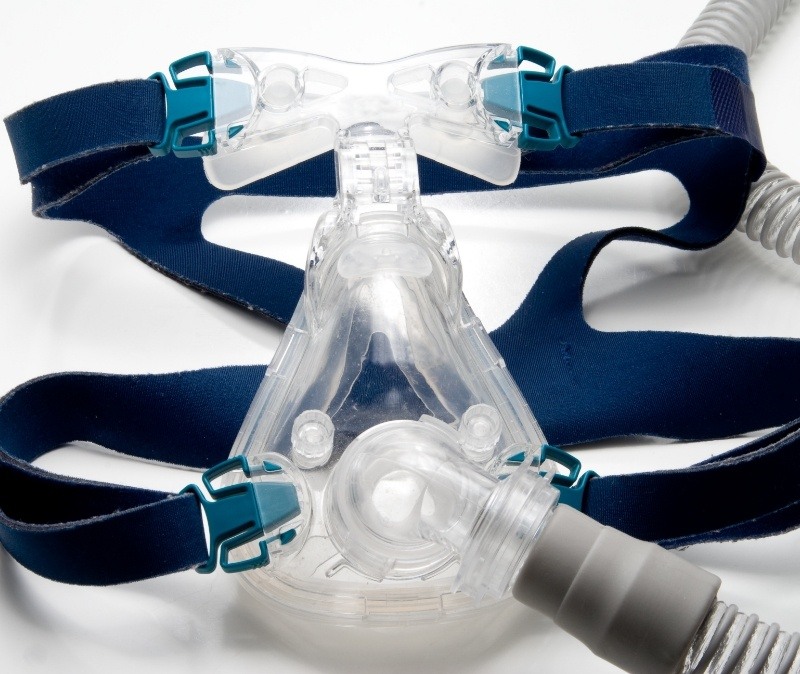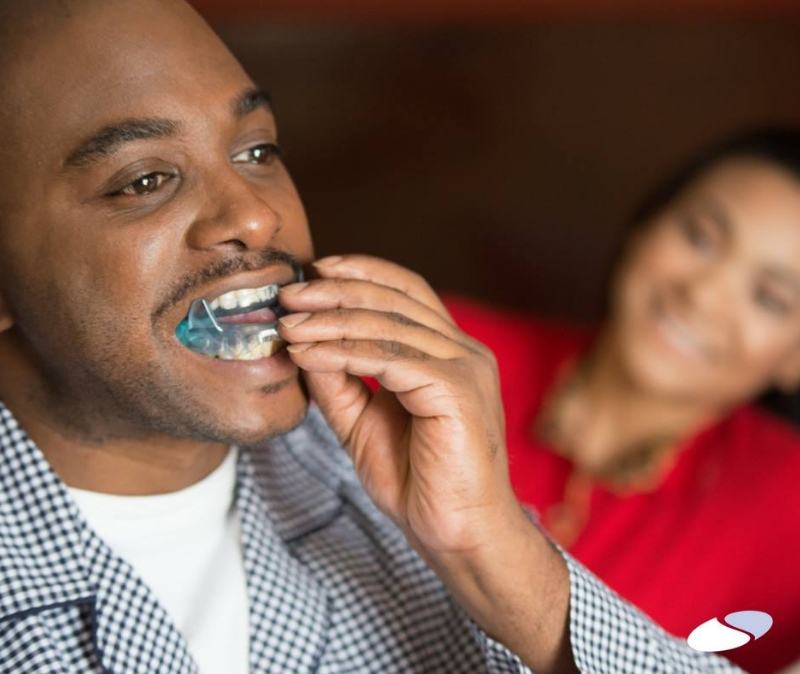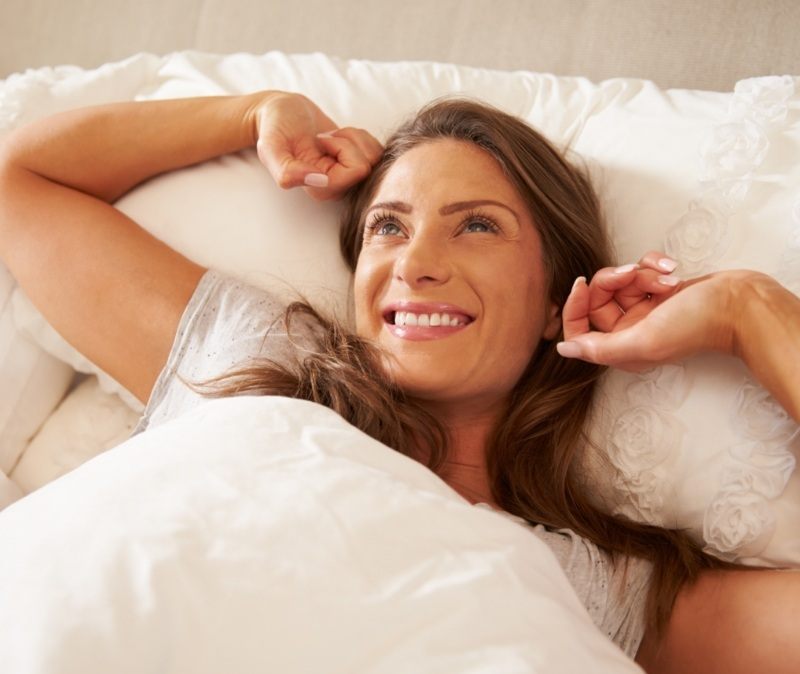Sleep Apnea Treatment – Beachwood, OH
Better Nights & Better Mornings
Looking for a good night’s sleep? Turn to The Center for Advanced Dentistry. The Center for Advanced Dentistry offers a complimentary consultation for our dental patients who snore. At the initial visit, we discuss your major concerns about your sleep situation and fatigue. Our dentistry team will also review your medical history and symptoms, as this information is vital for your treatment. Plus, it helps measure your risk for sleep apnea. Keep reading to learn more abut sleep apnea treatment in Beachwood, OH.
Why Choose the Center for Advanced Dentistry for Sleep Apnea Treatment?
- Custom-Made Sleep Appliances for Each Patient
- Able to Stop Even Severe Snoring
- More Comfortable Alternative to CPAP Therapy
What is Sleep Apnea?
You may think of snoring as a mild nuisance, but it can actually be indicative of a serious sleep-breathing disorder known as sleep apnea. Snoring occurs when soft tissues block air passages. Air then forces entry causing the muffled vibrations we know as snoring. A variety of factors contribute to airway blockage including tongue and jaw position, throat size, and tonsil or adenoid size. Snoring does not necessarily indicate sleep apnea, but the only way to be certain that you aren’t suffering from this potentially dangerous condition is to complete a sleep study. Even if you don’t have sleep apnea, an oral appliance can help eliminate snoring. After all, your bed partner would like to get a good night's sleep, too!
The Impact of Not Sleeping

The side effects of not sleeping are significant and potentially life-threatening. People who do not receive adequate sleep are three times more likely to be involved in a fatal car crash than people who sleep soundly throughout the night. Sleep apnea sufferers frequently experience depression and anxiety, and heart disease, high blood pressure, stroke, and premature death are all related to the sleep breathing disorder. Poor sleep doesn’t just make you tired -- it can literally kill you. Don’t wait to seek help for sleep apnea from Dr. Schlessel and Dr. Hornstein.
Not Wearing Your CPAP?

If you can’t stand to wear your CPAP, or continuous positive airway pressure machine, you are certainly not alone. Over half of patients prescribed CPAP therapy for sleep apnea do not find the relief they need, so they discontinue its use altogether. The CPAP is loud, uncomfortable, and may cause more interruptions in sleep than the original sleep apnea. Fortunately, treatment with a removable oral appliance from our team offers a small, portable, silent alternative to CPAP therapy.
Learn More About CPAP Alternatives
Oral Appliance Therapy

If it’s determined by a medical doctor that you would benefit from sleep apnea therapy, The Center for Advanced Dentistry is prepared to assist! Depending on your needs, Dr. Schlessel and Dr. Hornstein can fit you for either a Somnodent or The Moses, both of which are oral appliances worn during sleep. These devices effectively treat sleep apnea by maintaining the position of your tongue and soft tissues while you sleep keeping your airway open throughout the night. Almost everyone affected by sleep apnea that uses this form of therapy reported a comfortable, full night’s rest when wearing it. These revolutionary tools can only be obtained by working with healthcare professional like us.
Start Sleeping Better… Today!

Please contact us today to arrange your sleep apnea therapy appointment. Our team sees patients from Beachwood, Cleveland, Pepper Pike, Solon, Shaker Heights, and other Ohio cities. If this will be your first time coming to our dental office, please review and complete the instructions on our new patient page.
Sleep Apnea Frequently Asked Questions
Most people have heard of sleep apnea, but many don’t know how the condition actually works, let alone their treatment options. We’re here to fill in the gaps by answering all of your questions and put your concerns to rest. Below, you’ll find our responses to some of the most popular questions we receive on the subject.
What are the signs of OSA?
The signs of obstructive sleep apnea are not always easy to recognize at first, but with careful consideration you can determine their presence. For example, the most common signs include loud snoring and gasping or choking sounds while you sleep. While snoring does not guarantee that you have sleep apnea, it is by far one of the most notable signs to keep in mind. Sleep apnea is more common in men, however, it can also occur in women, especially during or after menopause.
What are the negative side effects of OSA?
Obstructive sleep apnea is a chronic condition that does not get better on its own. Without treatment, the complications that can occur are quite extraordinary. For example, people with untreated sleep apnea are at higher risk of developing high blood pressure, stroke, heart disease, diabetes, chronic acid reflex, and erectile dysfunction. Due to the lack of sleep, you’re also more likely to suffer from chronic fatigue, short-term memory loss, poor concentration, irritability and mood swings.
What is oral appliance therapy?
According to many years of research on the subject, oral appliance therapy has been proven to be an extremely effective treatment option for snoring and obstructive sleep apnea. Oral appliances are custom-made devices designed to be worn only when sleeping. It feels similar to a sportsguard, nightguard, or orthodontic retainer. The way they work is relatively simple: the appliance repositions your jaw forward, causing your throat to remain more open during sleep. This keeps the upper airway clear, allows proper air flow, and reduces the risk of your throat closing. The more open your airway, the easier it is for oxygen to travel throughout the night. In many cases, patients experience immediate relief after using an oral appliance.
What are the benefits of oral appliance therapy over CPAP?
While continuous passive airway pressure (CPAP) machines are considered to be the gold standard for sleep apnea treatment, patients who use them often run into compliance issues. For example, many patients feel claustrophobic while wearing the mask that’s designed to push air into the patient’s mouth. This causes them to remove the mask before they even fall asleep. Additionally, some patients end up removing the mask accidentally while they sleep, making it impossible to function properly.
Not only are there almost zero compliance issues with oral appliances, but they are far more comfortable to use than a CPAP machine and, in many cases, are sufficient for keeping the airway open. You can also take it anywhere, which cannot be said for large and cumbersome CPAP machines. While oral appliances may not solve the most severe cases of sleep apnea, it’s an ideal alternative for those who found the CPAP machine too difficult to use.
I Need a Checkup & Cleaning I Have a Cavity or Broken Tooth I am Missing One or More Teeth I Want to Improve My Smile I Want a Straighter Smile I Have Pain in My Jaw I am Worried About Gum Disease I am Interested in Holistic Dentistry I Have a Dental Emergency I am Scared of the Dentist View Our Services
